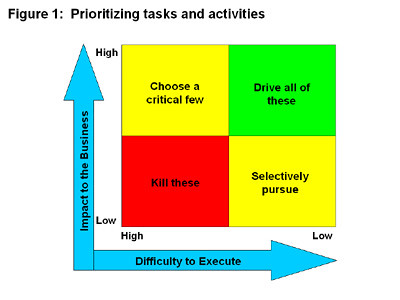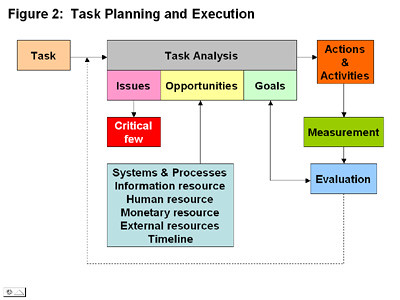Job-killing recession racks up more layoff victims.
http://www.btimes.com.my/Current_News/BTIMES/articles/jobs26/Article/
10 years of woe: Gates.
http://www.smh.com.au/news/world/10-years-of-woe-gates/2009/01/27/1232818386171.html
- Adopt a positive attitude – you are an asset to the company
- Seek out positive aspects brought by the change instead of burying yourself in unhappiness and ambiguity
- Seek accurate information or clarification – sort out the myths from the facts. Do not assume and derive your own conclusions based on rumours
- Avoid “emotional vampires” in the office who will suck your positive energy by telling you why now there is no future with the company, the new job is only temporary and that another round of restructuring or retrenchment will be coming, or it is no longer worthwhile to work hard and smart for the company, etc
- Get involved – to deal with change with minimal pain, you will need to work fast, stay focused, be flexible, and cope with ambiguity
2. Rediscover your passion
Now that you realise that you have been retained because you have been performing well in the past, how did you do it? Where did the self-motivation come from to drive you to become one of several good or excellent performers in the organisation? All that ambiguity, office and industry rumours have frightened your passion into hiding.
Yes, the passion is still inside you. More than other times, you now need to rediscover it – overcome your low morale and take charge. You have done it before – perhaps many times in the past. So, it is not impossible for you to rediscover your passion again if you set your mind to it, and the mind is a formidable human ability that directly affects our thoughts, behaviours and actions.
3. Build new relationships
The single most important relationship is that you need to establish a productive working relationship with your new boss and manage his or her expectations. This means you will need to plan out a series of one-to-one meetings to discuss about your new role and responsibilities, critical issues to be addressed, resources, working style, expectations and mentoring, delivery timeline, and personal development.
You will also need to identify colleagues and peers that can help you by guiding or coaching you. Establishing early cooperation and support from colleagues and peers is important.
4. Learn fast
Now that you are in a new team or department, you need to accelerate your learning. This means that you need to quickly understand the new methodologies and processes, systems and technologies, documentation, availability and location of information resources, communication structures, markets, products, and the sub-culture of the team or department.
5. Identify critical issues
“There are no universal rules for success in transitions,” says Harvard Associate Professor Michael Watkins (2003, p.13). To begin tackling your new job responsibilities, you will need to:
- Diagnose the situation of the new business portfolio or work requirements
- Understand the history
- Identify the challenges and opportunities
- Know what constitutes your Circle of Influence (Covey, 1989, pp. 81–91)
- Focus on the critical few that are important to your new boss and the business

6. Get your hands dirty and secure early wins
There are no shortcuts to credible, sustainable and repeatable success. To get the job done and to deliver results, you must get your hands dirty i.e. you have got to do it. Do not rely on others to get the job done – while you wait for others, others wait for you. Take ownership and drive the task through to proper completion or closure. Break down large tasks into smaller ones – each completed small task represents a milestone to the conclusion of the single large task.
Among the critical issues that are important to your new boss and the business, focus on the lower hanging fruits and tackle or solve those first. This approach will help you achieve early wins to build your credibility, create momentum, and also enhance your positive thinking {Watkins, 2003, p. 13).
7. Be humble
Do not become conceited and allow past achievements to go to your head. Being overly proud about your past or current achievements can cloud your judgement and lower your guard. Remember, recessions do not last for only a few days. So, you need to have sustaining power – think marathons and not 100 metre runs. Every new day will offer a new challenge. Yesterday’s success does not guarantee you success today or tomorrow – it only serves to give you guidance and a positive attitude.
8. Improve yourself – continuing professional development (CPD)
Now may be a good time for you to further your studies part-time, for e.g. the MBA degree or other postgraduate degree or professional qualification (ACCA http://www.accaglobal.com/, CIMA http://www.cimaglobal.com/, ICSA http://www.icsa.org.uk/ http://www.maicsa.org.my/) that you have been putting off. Acquiring new knowledge or skills within the next 2 to 3 years would put you in a better position when the economy rebounces.
Other alternatives are short courses or training courses that specialises in a particular area or discipline, for e.g. management, accounting, financial management, marketing management, product management, costing and budgetary control, purchasing and supply chain management, and also language courses such as Chinese/Mandarin and Japanese, etc.
In Malaysia, such courses are available, for example, from the Malaysian Institute of Management http://www.mim.org.my/, the Federation of Malaysian Manufacturers http://www.fmm.org.my/index.asp http://www.fmm.edu.my/, Open University Malaysia’s Institute of Professional Development http://www.oum.edu.my/, University of Malaya Centre for Continuing Education http://www.umcced.edu.my/, and others. Also, do check on recognition and accreditation of the course by the relevant authorities, and/or the private sector. For Malaysians, one way of financing your studies can be via EPF’s Educational Withdrawal Scheme that is loan- or debt-free.
9. Planning is necessary. Execution, a must
Planning helps you develop a roadmap to manage your job responsibilities, identify challenges and opportunities, and the required actions or activities. Figure 2 outlines the task planning and execution process.

10. Personal branding
Personal branding is about marketing yourself in a professional way to boost your career. Consider starting a weblog on a particular area or topic of interest that can complement your career goals or aspirations instead of political and sensitive weblogs (unless you are a politician).
If you lack HTML programming knowledge, then check out the easy weblogging offered by Google’s Blogger https://www.blogger.com/start, Yahoo! 360 http://360.yahoo.com/ or MSN Spaces a.k.a. Windows Live Spaces http://specials.uk.msn.com/spaces/default.aspx.
Additionally, create your presence in LinkedIn http://www.linkedin.com/ or Facebook http://www.facebook.com/ that will enable you to network with other professionals to create or develop future career growth opportunities.
1 From one of two motivational posters given to me by my brother-in-law when I was going through my first retrenchment experience several years ago
References:
Champy, James & Nohria, Nitin; editors. (1988 – 1996). Fast Forward: The Best Ideas on Managing Business Change. Boston, MA: Harvard Business School Press
Covey, Stephen R. (1989). The 7 Habits of Highly Effective People. New York, NY: Fireside / Simon & Shuster
Evans, Dave. (2008). Social Media Marketing: An Hour a Day. Indianapolis, IN: Sybex / Wiley Publishing, Inc
Gardner, Susannah & Birley, Shane. (2008). Blogging for Dummies, 2nd Edition. Hoboken, NJ: Wiley Publishing, Inc
Johnson, Dr. Spencer. (1998). Who Moved My Cheese? An Amazing Way to Deal with Change in Your Work and in Your Life. London, England: Vermilion / Random House
Joyce, William F. (1999). MegaChange: How Today’s Leading Companies Have Transformed Their Workforces. New York, NY: The Free Press
Kotter, John P. (1996). Leading Change. Boston, MA: Harvard Business School Press
Kotter, John P. (2008). A Sense of Urgency. Boston, MA: Harvard Business Press
Salmon, Michael. (2004). Super Networking. Petaling Jaya, Malaysia: Advantage Quest Publications
Watkins, Michael. (2003). The First 90 Days: Critical Success Strategies for New Leaders at All Levels. Boston, MA: Harvard Business School Press
2 Wee, Chow Hou; Khai Sheang, Lee & Hidajat, Bambang Walujo. (1991). Sun Tzu: War and Management. Singapore: Addison-Wesley
1 comment:
A 10-point survival guide to keep your job:
http://money.cnn.com/2009/01/06/news/economy/10.tips.fortune/index.htm
Post a Comment